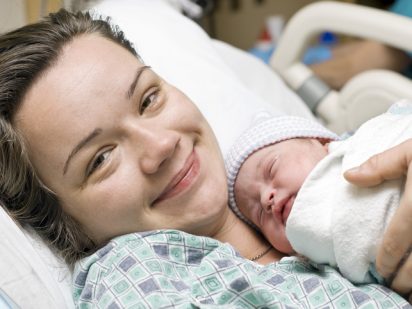Trinity Health has joined a national campaign to safeguard women’s health after they give birth. The educational initiative, known as “POST-BIRTH Warning Signs,” has become standard protocol among nurses in Trinity Health’s Family Birth Center.
Developed by the Association of Women’s Health, Obstetric, and Neonatal Nurses, the program is aimed at educating women on the complications that can arise post-birth. It further encourages women to take action by seeking medical attention if warning signs emerge.
“Most women who give birth recover without problems, but any woman can have complications after delivery,” said Deb McAvoy, nurse manager of the Family Birth Center. “We want our women to be educated.”
The Centers for Disease Control and Prevention says about 700 women die of pregnancy-related problems each year in the U.S. Of those deaths, nearly 60 percent are preventable. Moreover, American women are more likely to die from childbirth or pregnancy-related causes than women in other high-income countries.
Common causes of maternal mortality are:
- Cardiovascular and coronary conditions
- Uncontrolled high blood pressure
- Obstetric hemorrhage
- Infection
- Mental health conditions such as postpartum depression
- Pre-eclampsia and eclampsia
McAvoy says Trinity Health’s strategy has several components, which include assessing each patient for their risk of post-partum hemorrhage, quantifying blood loss at each delivery, a discharge education checklist, and “Save Your Life” handouts for patients at discharge. “It’s something we go through with each patient to increase their recognition and response to life-threatening symptoms, and we encourage them to post it on their refrigerator so it’s top of mind,” McAvoy said.
She noted that studies are ongoing to identify the reasons why America has a higher maternal death rate than other developed countries. However, the American College of Obstetricians and Gynecologists notes that women who get pregnant in their late 30s or 40s have a higher risk of complications.

